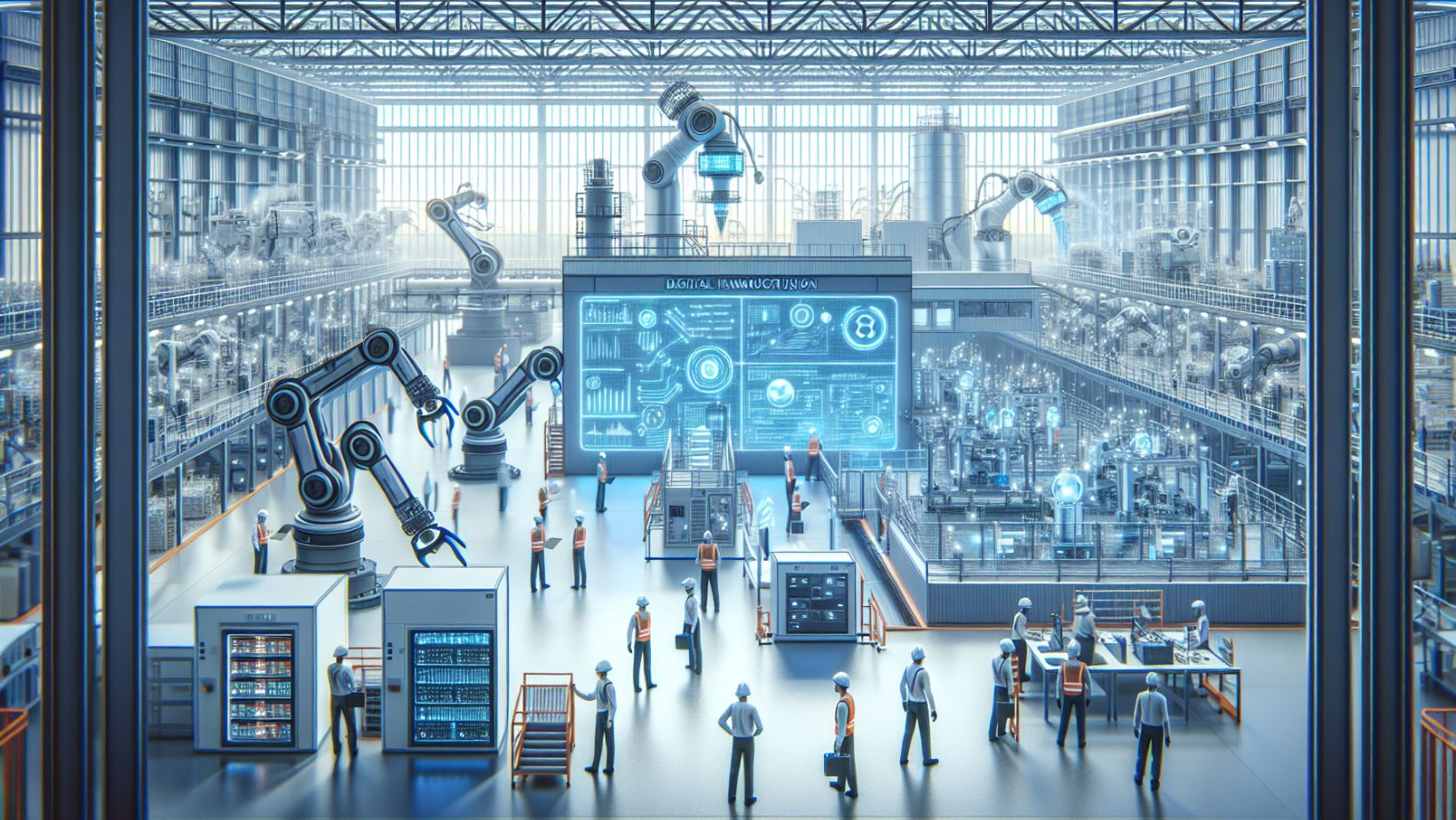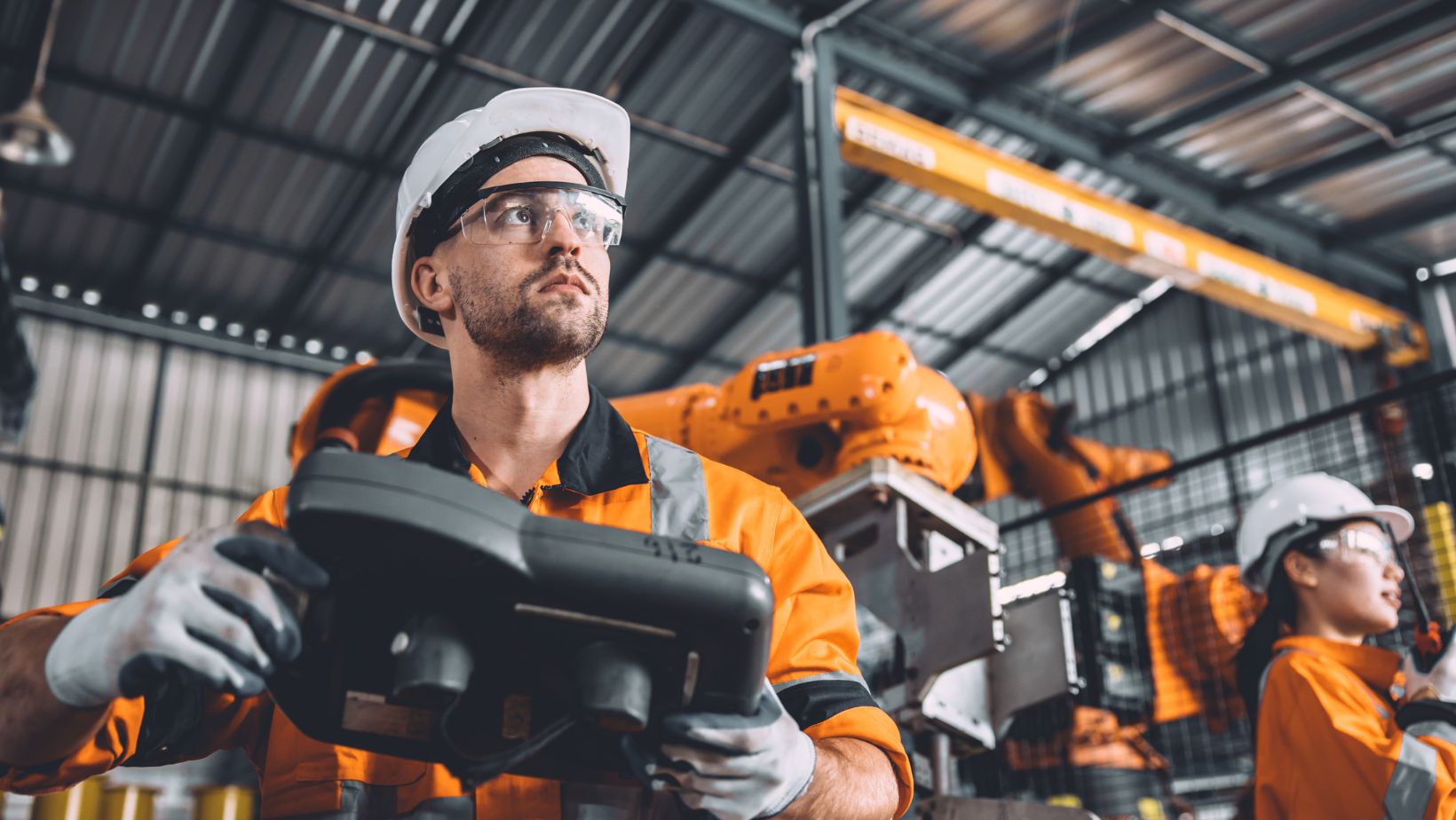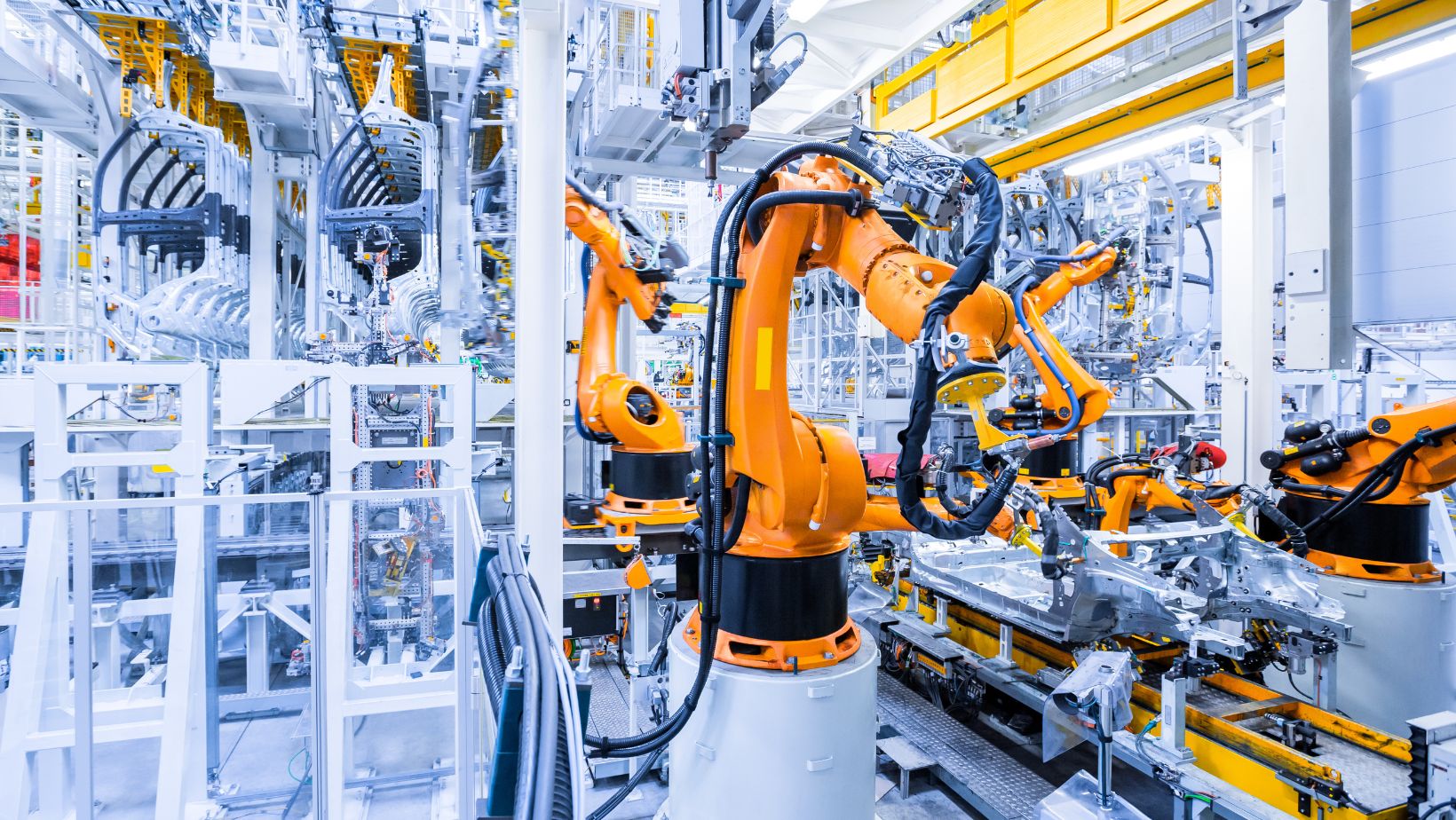Table of Contents
Toggle In the constantly evolving manufacturing landscape, safety remains a paramount issue that concerns everyone involved in the manufacturing process. Leveraging cutting-edge technology offers new avenues for enhancing workplace safety. This article explores integrating these technological advancements to create safer environments.
In the constantly evolving manufacturing landscape, safety remains a paramount issue that concerns everyone involved in the manufacturing process. Leveraging cutting-edge technology offers new avenues for enhancing workplace safety. This article explores integrating these technological advancements to create safer environments.
 As a professional navigating the manufacturing sector, you understand the importance of maintaining a safe workplace. The rise of technology presents an opportunity to elevate safety measures, ensuring compliance and the well-being of your workforce. By embracing these innovations, you can mitigate risks and foster a safety culture in your operations.
As a professional navigating the manufacturing sector, you understand the importance of maintaining a safe workplace. The rise of technology presents an opportunity to elevate safety measures, ensuring compliance and the well-being of your workforce. By embracing these innovations, you can mitigate risks and foster a safety culture in your operations.
The Role of IoT in Manufacturing Safety
You may have heard about or noticed that Internet of Things (IoT) technology has revolutionized many industries, and manufacturing is no exception. By incorporating IoT devices, you can monitor equipment performance in real-time and identify potential hazards before they escalate. For instance, sensors can detect overheating or unusual vibrations in machinery, prompting immediate action. Additionally, you can integrate IoT to help digitalize plant process, enhancing overall operational efficiency. This proactive approach prevents accidents and minimizes downtime and maintenance costs.

Advanced Robotics for Risk Reduction
Another significant technological advancement in manufacturing is the deployment of advanced robotics. Modern robots can handle tasks that are either too dangerous or monotonous for human workers. These robots are equipped with sophisticated sensors and algorithms that enable them to navigate complex environments safely. Incorporating robotics into your operations reduces the likelihood of human error and significantly lowers the risk of workplace injuries. In cases where injuries do occur, consulting a Workers’ Comp Lawyer can help ensure employees receive the support and compensation they deserve. This approach ensures that your workforce remains focused on tasks requiring critical thinking and creativity, while robotics can take care of the automated processes.
Collaborative robots, or cobots, represent the next frontier in manufacturing safety. These advanced machines are designed to work alongside humans, combining the precision of robotics with human problem-solving skills. Cobots are equipped with sensors and force-limiting technology, allowing them to detect human presence and adjust their operations accordingly. This symbiotic relationship between humans and robots enhances productivity and creates a safer work environment by reducing the risk of collisions and allowing for more flexible, ergonomic workstations. As you integrate cobots into your manufacturing processes, you’ll find that they complement your human workforce, taking on repetitive or physically demanding tasks while allowing your employees to focus on higher-value activities.
The Impact of AI on Predictive Maintenance
Artificial Intelligence (AI) is transforming predictive maintenance strategies within the manufacturing industry, this isn’t necessarily a new phenomenon. AI algorithms analyze vast amounts of data from various sources to predict equipment failures before they occur. This technology allows you to schedule maintenance activities during non-peak hours, reducing disruptions to your production line. Moreover, AI-driven insights help you make informed decisions about equipment upgrades and replacements, ultimately enhancing the safety and longevity of your machinery. Predictive maintenance safeguards your assets and contributes to a more stable and secure working environment.
Ensuring Cyber Security in Smart Factories
Cybersecurity becomes increasingly crucial as you embrace more connected technologies within your manufacturing processes. Protecting your digital infrastructure from cyber threats is essential for maintaining operational integrity and employee safety. Implementing robust cybersecurity measures protects sensitive data and control systems from malicious attacks. Regularly updating software and conducting security audits are vital practices for safeguarding your smart factory against vulnerabilities. By prioritizing cybersecurity, you create a secure environment where technological advancements can thrive without compromising safety.















